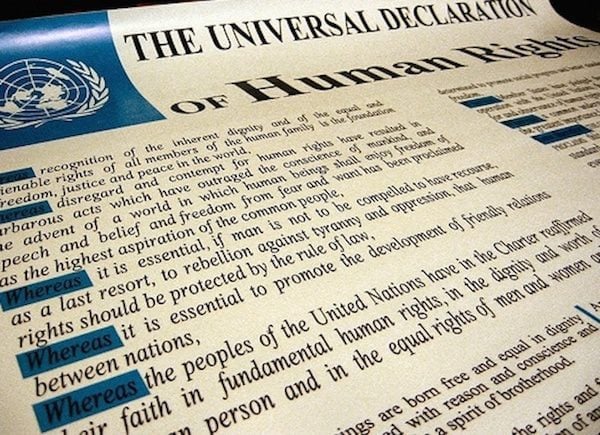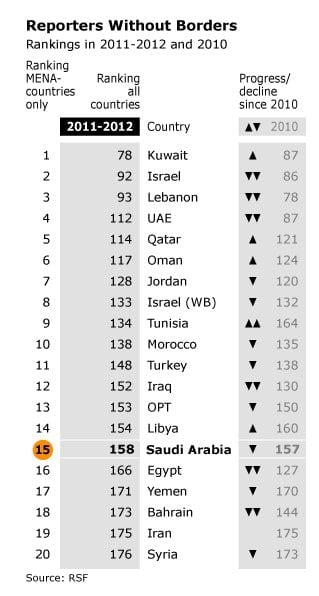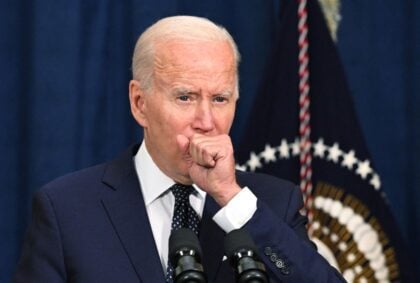
Introduction
The concept of human rights has become a well-known and widely accepted term to use. Varying interpretations are possible, with differences usually being based on cultural background. Nonetheless, most of these understandings consciously or subconsciously include the basic rights outlined in the United Nations’ Universal Declaration of Human Rights.
The United Nations General Assembly (GA) adopted the Universal Declaration of Human Rights on December 10th, 1948. It was written in the aftermath of World War II, “… as a common standard of achievement for all peoples and all nations, to the end that every individual and every organ of society, keeping this Declaration constantly in mind…” Thus it was truly meant to be universal, to protect citizens from any type of violation the world had recently experienced, as outlined in the Preamble and 30 Articles.
As such, it includes articles on the right to life in dignity; liberty and security; freedom of movement; right to nationality and education; just treatment of human beings and respect; as well as freedom of expressions and opinions, from torture or inhumane treatment, as well as economic, social and cultural rights.
International Human Rights Law
The Declaration is not legally binding, but is the basis of international human rights law. Two binding UN covenants were formed as a result of the UDHR; the International Covenant on Civil and Political Rights and the International Covenant on Economic, Social and Cultural Rights. Combined, these three documents are often referred to as the “International Bill of Human Rights”.
Over the years other conventions have been written to expand on and add to this fundament, focusing on a variety of topics such as refugees (1951 and 1967), discrimination of women (‘CEDAW’, 1979) and disabled persons (2008), against torture (1987), protection of migrant workers (1990), and against racial discrimination (1969) to name a few.
Additionally, the International Labour Organization has compiled a large number of conventions specifically related to work force and labour standards, of which 8 are considered ‘fundamental conventions’ and relate to freedom of association (1948, C087), collective bargaining (1949, C098), forced labour (1930, C029 and 1957, C105), minimum age (1973, C138), child labour (1999, C182), equal remuneration (1951, C100), equal opportunity and treatment (C111).
Geneva Conventions
The Geneva Conventions are a revision of previously constructed conventions, adjusted after WWII and specifically focus on treatment of persons in time of war. It consists of four Conventions, and three additional protocols. The International Committee of the Red Cross (ICRC) explains that the Conventions “aims at ensuring that, even in the midst of hostilities, the dignity of the human person, universally acknowledged in principle, shall be respected.”
During a series of expert meetings, congregations by Red Cross agencies, and a confluence of government representatives over time, the articles were revised until a draft was represented at The Diplomatic Conference for the Establishment of International Conventions for the Protection of Victims of War in 1949. The Final Act was signed by fifty-nine nations, some of which no longer exist, and has attained more signatories since.
The Cairo Declaration on Human Rights in Islam (CDHRI) was compiled by the Organisation of Islamic Cooperation (OIC) in 1990, during the 19th Islamic Conference of Foreign Ministers in Cairo, and has 57 signatories. This Declaration holds similar – if not identical – principles as the UDHR, but notably also included articles related to ‘jus in bello’ – acceptable wartime conduct, alike the Geneva Conventions. The CDHRI also addresses equality between women and men, rights of the child, freedom, right to medical care, right to self-determination, amongst others. Most notably is that this 25 Article document clearly lists the Sharia as reference point including for punishment. The CDHRI has been adopted by 45 countries, out of the total 57 members of the OIC.
Conventions Signed By Saudi Arabia
Saudi Arabia signed the Conventions on 18 May 1963, Additional Protocol I (Protection of Victims of International Armed Conflicts) on August 21, 1987 and Additional Protocol II (Protection of Victims of Non-International Armed Conflicts) on November 28, 2001. Moreover, Saudi Arabia became signatory to the Convention for the Rights of the Child (CRC) on 26 January 1996, as well as the Optional Protocol to the CRC on 10 June 2011.
During the vote for adoption of the UDHR, Saudi Arabia was one of the 8 abstaining nations, and has been member of the OIC since 1969.
Saudi Arabia has signed six of the eight fundamental ILO conventions, leaving the convention related to freedom of association (C087) and freedom of collective bargaining (C098) un-ratified.
Refugees
The Convention relating to the Status of Refugees is based on Article 14 of the UDHR, and recognizes the right of asylum and protection of refugees. It was approved during the General Assembly meeting of December 14, 1950 and came into force on April 22, 1954. However, the original Convention limited its scope to refugees fleeing prior to 1 January 1951. As such, an additional protocol was compiled in 1967, removing these limitations.
Saudi Arabia is not party to the 1951 Convention or its Protocol.
Women
The Convention on the Elimination of All Forms of Discrimination against Women – also called CEDAW, was approved during the General Assembly Session on 18 December, 1979 and entered into force on 3 September 1981. The Kingdom signed and ratified CEDAW on September 7, 2000. Countries that have ratified or acceded CEDAW are legally bound to put its provisions into practice, and thereby agree to submit national reports on measures taken to comply with its obligations. Such reports are to be compiled at least every four years.
Three main reservations were made on the day of ratification, mainly the exclamation of non-obligation to observe the Convention in case of it contradicting Islamic law as applied in the Kingdom. Additionally, Saudi Arabia does not consider itself bound by Article 9 (2), concerning children’s nationality, and Article 29 (1), discussing dispute between states concerning interpretation or application of the Convention. It is noteworthy that Article 29 (2) specifically allows for such a reservation.
Persons with Disabilities
The Convention on the Rights of Persons with Disabilities was approved during the General Assembly session on December 13, 2006 and came into force on May 3, 2008. Simultaneously, the Optional Protocol was approved, giving the Committee on the Rights of Persons with Disabilities (CRPD) competence to examine individual complaints with regard to alleged violations by States parties to the Protocol. The CRPD is the body of independent experts that monitors implementation of the Convention. Saudi Arabia acceded to the Convention as well as the Optional Protocol on June 24, 2008. Through “accession” a state accepts the offer or the opportunity to become a party to a treaty, which has already negotiated and signed by other states. It has the same legal effect as ratification.
Torture
The Convention against Torture and Other Cruel, Inhuman, or Degrading Treatment or Punishment, also referred to as just the Convention against Torture, was adopted during the General Assembly session on December 10, 1984. On June 26, 1987 it was registered and thereby came into force. Its implementation is monitored by the Committee Against Torture(CAT), composed of ten individuals of various nationalities. All signatory states are obliged to send regular reports to the CAT, based on which recommendations are made. Saudi Arabia confirmed its accession to the Convention on September 23, 1997 with two reservations. The Kingdom does not recognize the mandate of the Committee as prescribed in Article 20, and does not consider itself bound by Article 30, paragraph 1 referring to disputes between States related to interpretation or application of the Convention. It is noteworthy that such reservations are allowed for as per Articles 28 and 30-2 of the convention, respectively.
Migrant Workers
The International Convention on the Protection of the Rights of All Migrant Workers and Members of their Families was approved by the General Assembly on December 18, 1990 and entered into force on July 1, 2003. Saudi Arabia is not party to the Convention.
Racial Discrimination
The Convention on the Elimination of All Forms of Racial Discrimination was approved by the General Assembly and accordingly opened for signature on March 7, 1966. It entered into force on January 4, 1969. Despite the obvious as stated in the Convention title, it aims to obliterate hate speech and promote understanding. Implementation of the articles is monitored by the Committee on the Elimination of Racial Discrimination, to which bi-annual reports are submitted by each signatory. It also is responsible for handling inter-state and individual complaints related to non-conformity to the provisions of the Convention, as prescribed in Article 14.
Saudi Arabia acceded to the Convention on September 23, 1997, with the reservation that provisions will only be implemented if they are not in contradiction with the Shariah. Additionally it noted that it does not consider itself bound to Article 22, pertaining to inter-state dispute resulting from interpretation or implementation of the Convention, stating that all parties to the dispute are to expressly consent to intervention of the International Court of Justice.
Human Rights in Saudi Arabia
Saudi Arabia’s Basic Law of Governance states in Article 26 that the State shall protect human rights in accordance with the Sharia. In effect, however, many human-rights violations are reported due to failure to adhere to the state commitment to human rights. Saudi Arabia has been a member of United Nations since 1945 and is signatory to several conventions and treaties to respect human rights, one of which is the Arab charter for human rights. Moreover, Saudi Arabia has founded two government-supported human-rights organizations to help promote and document human-rights issues in the kingdom – the National Society for Human Rights (NSHR) and the Saudi Council for Human Rights.
The two organizations report directly to the royal court and have the capacity to communicate and investigate human rights in various governmental entities. In addition, several non-governmental and independent human-rights organizations operate on the ground or online, collecting data and documenting human-rights violations and promoting human rights across Saudi society.
Most of the international and regional objections concerning human rights in Saudi Arabia come from the limited rights granted by the state to its citizens and, in particular, to women and Shiite minorities.
Various international human-rights organizations, such as Amnesty International and Human Rights Watch, maintain a published record on Saudi Arabia’s violations. Sometimes, successful communication with the authorities leads to the relief of a violent or stressful human-rights situation.
The Basic Law does not guarantee basic rights, such as the freedom of belief, expression, assembly, or political participation. Punishment of individuals and groups accused of organizing a civil group or calling for a political party range from travel bans and prosecutions to arrest and imprisonment. The freedom of speech is limited, and individuals who use online or print media to express concerns involving members of the official religious establishments or religion in general, the royal family, or governmental officials can be punished.
The state’s Wahhabi or Salafi version of Sunni Islam is the only public religion permitted in the country. Minority groups or migrant workers are not allowed to display publicly any religious practices or teaching.
Media in all forms – online, TV and radio, and print – are subject to strict censorship to prevent political dissent and anything deemed culturally or religiously inappropriate, according to the country’s standards.
Women’s rights are one of the main issues facing Saudi Arabia, because of the strict gender segregation and limited rights granted women for their self-determination. Women in Saudi Arabia are required to have permission from or representation by a male guardian to gain access to any governmental service. They cannot enroll in education, get certain jobs, or start a business without a male guardian consent or representation. In addition, the lack of a minimum marital age and codified family law subject many women to familial abuse or domestic violence, with no guaranteed legal redress.
Corporal punishments such as amputation – and beheading – are applied based on strict Islamic jurisdiction. In addition, many prisoners of conscience remain in detention without charge or trial or are tried on false charges to curb their political dissent; this has recently given rise to national campaigns by activists to highlight their plight.

According to Reporters Without Borders, Saudi Arabia ranked 158 out of 179 countries in the 2012 Press Freedom Index. Strict censorship is maintained on news and information to preserve the control of the royal family and the religious establishment over the country. Self-censorship is high among journalists because of the insecurity in reporting and publishing.
There are more than 400,000 websites on the Saudi official Internet blacklist, including political, religious, and pornographic sites.
In 2009, the Lebanese LBC Channel in Jeddah was shut down for airing an episode on the promiscuity of a Saudi man. The man was arrested and sentenced to five years in prison and to hundreds of lashes. The reporter was sentenced to 60 lashes but was later pardoned by the King. In 2011, the young independent team of a YouTube program were arrested for several days for airing an episode on poverty in Saudi Arabia.
A university professor, Mohammad Alabdulkarim, was jailed for several months for writing an online article revealing the corruption, and questioning the legitimacy, of the royal family. In 2012, a poet and journalist, Hamza Kashgari, was brought from another country and imprisoned for tweets considered offensive to religious scholars, in which he expressed personal views of the Prophet. Any foreign journalist or correspondent reporting from the kingdom must be accompanied by official minders to report on their work.
Latest Articles
Below are the latest articles by acclaimed journalists and academics concerning the topic ‘Human Rights’ and ‘Saudi Arabia’. These articles are posted in this country file or elsewhere on our website:





















